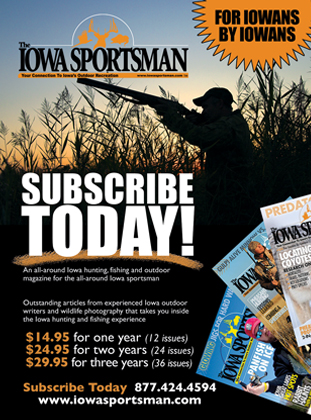10 Ways to Reduce the Price per Pound
10 Ways to Reduce the Price per Pound
By Earl Taylor
Spending money brings me pain; spending money on eating out in a fancy restaurant brings me more pain; spending money on a new vehicle…I have never done this so I don’t know how much pain that would be; spending money on a hunting trip doesn’t faze me. Somehow in my mental accounting system, I allow my trip to be pain-free.
How do I do it? The money I am willing to part with for an upcoming hunting trip still comes from the same checkbook as for insurance, clothes, mortgage, or paying for medicine. I can accept this by shifting the exchange of money under the mental account called “I really need to do this.” You have one of these same accounts; you just might not realize it. Some men will gamble away $200 in Vegas, using their entertainment account to justify such a short-term experience!
According to the authors of the book, Dollars and Sense, How we Misthink Money and How to Spend Smarter, “The pain of paying is the result of two distinct factors. The first is the gap between the time when our money leaves our wallet and the time we consume the goods (the hunt) for which we’ve paid. The second factor is the attention we give to the payment itself.” (Did we pay cash or did we punch in our credit card numbers thoughtlessly?)
I pay for my tags well in advance. For out of state hunts I book my cabin and pay for it in advance of the hunt. By the time I arrive in late September, the hunt feels like it is free for me. I can enjoy it without the pain or guilt. Not only do I arrive at the hunt without quilt, but I have also had two months of enjoyment of dreaming as I anticipated the hunt. I have high expectations which allow me to counterbalance my excessive expenditure of an out-of-state hunt.
However, when I have to lay down hard earned cash for a particular item- I feel pain. That is why I try to avoid it as often as I can. My nickname is not cheap-cheap, but something very close. I am so careful with my money that I will go without warm clothes or a pair of boots with holes- thinking I might be able to pick something up at the Goodwill store for nearly free.
Everyone loves a bargain; you feel like you win. No one likes to pay full price; you feel like you have lost. Give me a gift card to my favorite restaurant, and I am the first pig to the trough. Force me to open my wallet and lay out several $20 bills for a meal, and I will go kicking and screaming. It is too painful for me to enjoy a fine meal knowing it will cost me hard earned dollars; I remember it took me 4 hours of unpleasant work to earn the amount that I will consume in less than 30 minutes. (I would not be a fun date! My wife agrees.)
I look for hacks to save me from spending. I want to hunt and fish, but I don’t want the meat to be valued at $25 a pound; I want the value of the meat to seem reasonable and less than what I can purchase at Fareway. If you go out-of-state to hunt, the sheer cost of the license will dollar up the value of the meat you might bring back; I have to change my way of thinking to carry through with this type of hunt: I view it as a once-in-a-lifetime event- that just so happens every year.
In Iowa, I spend about $200 per year for tags and licenses to hunt and fish. I believe I get good value for my expenditures. My freezer is full of deer meat, a few packages of wild turkey breast and fish. My head calculator pencils out the meat to be about a buck a pound. I can live with this.
Here are ten hacks to save money:
• Buy used equipment. Take advantage of those who think that constant upgrades are key to their success. Somebody is always adding three more foot per second to their new and improved bow, and someone thinks they need the three feet improvement. I love to buy used bows. Three seconds doesn’t matter to me. I have killed deer with a bow that travels less than 200 feet per second; having the ability to shoot the fastest only counted on the 1960 TV show, Gunsmoke.
• Get by with your old clothes. Deer don’t know if you are wearing the latest camo pattern; nor do they care just how good you look. I dress as if I were a homeless person. Maybe no one wants to use my pictures of myself and my trophy in the centerfold of their catalogs but looking good has very little effect on success rate. The latest fashions might make us feel more like a hunter but feeling like one is not reality.
• Avoid gimmicks. “Buy this product, and your hunting skills will improve 47%.” We all have heard the carnival barkers at sports shows and on TV. It is easy to be suckered into something new and shiny rather than working on your shooting skills or stand placement. Don’t be a sucker; stick to the basics.
• Sell your excess. The longer you hold onto something, the more obsolete it becomes. Think army camo, think aluminum arrows. Get rid of your excess by giving it away or selling it. With today’s Craigslist and eBay, reselling good used items is more convenient than ever before.
• Purchase next year’s supplies at the end of the season. Broadheads and muzzleloader equipment are heavily discounted after the season is closed. Begin to check the shelves around Christmas time for over-stocked supplies that the retailer wants to unload before the new year.
• Avoid buying expensive jerky and other snacks, make your own. Jerky pencils out about $20 per pound if bought at Walmart; I can eat a half pound of jerky every day! By grinding up last years left over deer roasts, you can produce store quality jerky for a buck a pound.
• Grow your own bait. At $3 per dozen, night crawlers are $.25 each! I sacrifice my back in April when there are heavy spring showers and pick up at least 100 dozen crawlers. When my neighbors see me wandering the local gravel roads at 5 a.m. with a headlamp and a coffee can, they think I am running away from home again. I put the crawlers in a Styrofoam container, throw in some decaying leaves, sprinkle a little corn meal for food, and I have bait all summer long.
• Every dollar budget tracks all expenses. Do the same with your hunting supplies and equipment; that means gas, food, snacks, guns, ammo. Once you have begun tracking your expenses, you learn to forego some of the superlative purchases. Keep track of every expense associated with your outdoor pursuits.
• Forego the ATV. Fourteen thousand dollars is a lot of money to spend on something that gets you out to the tree stand and helps you carry out supplies and deer. I know, you rationalize it as a family vehicle that brings you closer together. If you want closeness, buy a $1000 Toyota pickup- you will feel the closeness. Using an ATV for hunting is like using a golf cart for golfing; what started out as a sport for exercise gets reduced to a sport with comfort.
• Avoid using your credit card. There is little pain when paying with plastic; by handing over hard-earned cash, the immediate pain will force you to buy less and shop harder for bargains. If you can’t pay cash, you don’t need it.
As the tiny house and the minimal lifestyle movement grows, young people are more aware of the excess of everything around them; what is true with houses is true with the sportsman. We don’t have a couple of fishing poles; we have 20 that we have collected by various means. We don’t have one shotgun we have a whole gun case full of seldom used guns. We have purchased more and more because we could, and not because we needed something.
Being frugal helps console the better half as well; I remember well my wife looking at me wondering how we could afford a $15 deer tag when the budget was tight, and our small children were in need of shoes. Mom needs to see value returning to the home budget.
My Dutch-like behavior paid off over the years of just getting by with leftovers and used equipment; today I have money for an out-of-state hunt every year. I can drive to my cabin in NE Iowa for trout fishing without concern of the family budget. I have an equally nice fishing cabin located over my home pond. As Dave Ramsey says, “If you live like no one else today, later you can live like no one else.”

